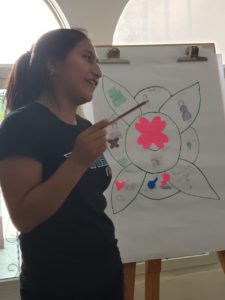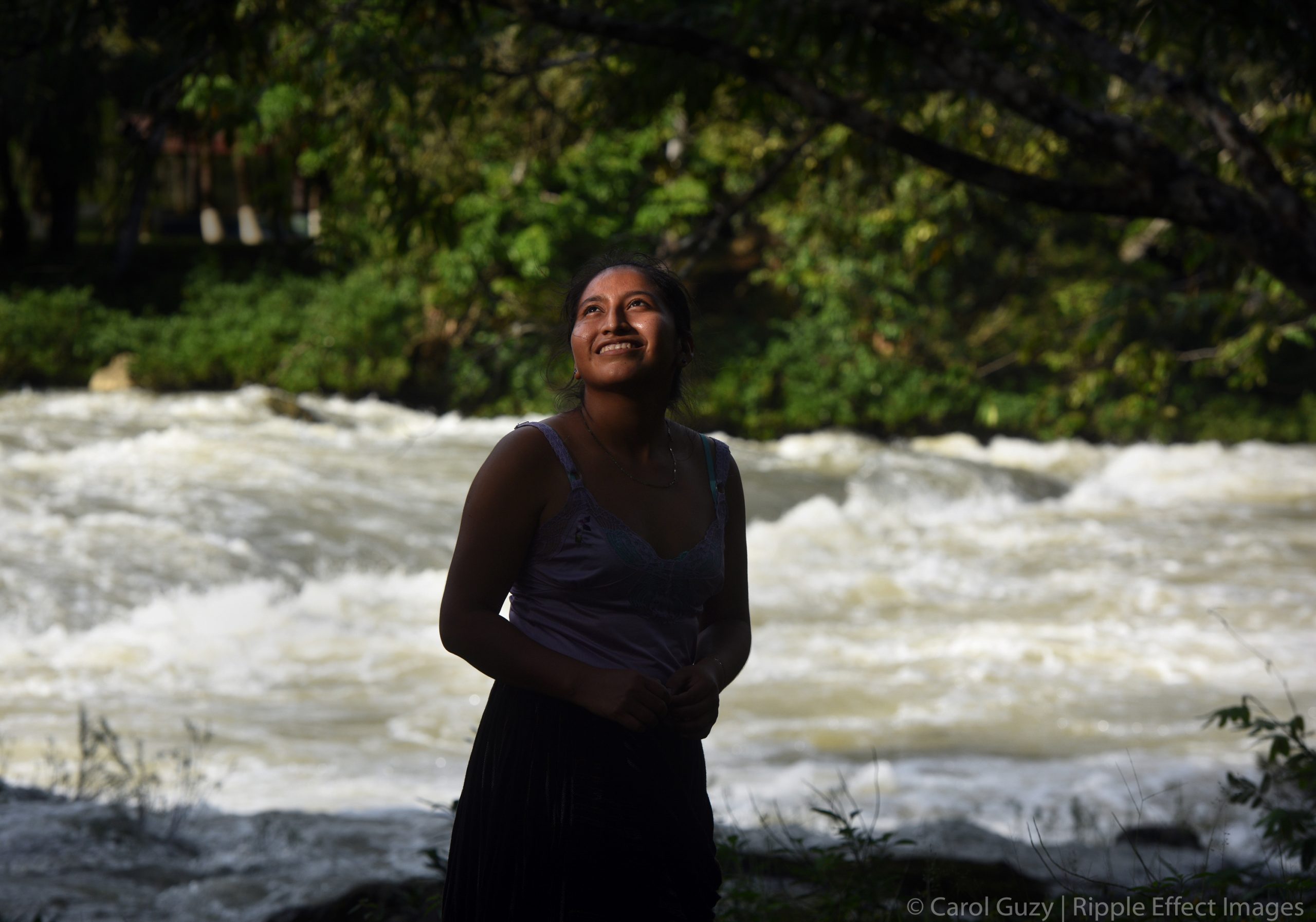In 2017, Guatemala outlawed child marriage. Yet still, 1,500 underage girls marry every day. By the age of 18, almost 30% of women in Guatemala are already married. Mayra Pop was one of them.
Mayra Pop is from the village of China Cadenas in the Guatemalan region of Izabal, where the Guatemalan Conservation Coast project is located. In her community, as in many rural, indigenous communities in the country, underage marriage is custom. Lack of access to education and poverty drive many girls into underage marriages, shutting them inside their homes, and preventing them from contributing to community growth and long-term change.
Mayra Pop was married at the age of 14. At this time in her life, Mayra was a young, bright-eyed girl with big dreams. She wanted to be the first women in her community to graduate. But after she was forced the marry, the future she imagined looked to be almost impossible. It seemed she was resigned to living a life she didn’t choose, like most of the women in China Cadena. But Mayra was different in one important way: she wouldn’t stand for it.
In 2017, Mayra sought the help of FUNDAECO, the project implementing partner for the Guatemalan Conservation Coast project, a REDD+ project which is funded by the sale of carbon credits to Ecosphere+ clients. FUNDAECO runs a girl’s education programme which has enabled hundreds of girls in remote communities in Izabal to attend school and earn an education. FUNDAECO took Mayra’s case to court, claiming that forcing her to marry violated her rights. As a result, Mayra was allowed to continue with her studies and was given a scholarship from FUNDAECO to study forestry engineering at a private university in Petén. Now, she wants to encourage the girls in her community to graduate as she did.
 Education for women has been noted the sixth most powerful solution to reversing climate change. That’s why education is a critical conservation priority for FUNDAECO, who work at the intersection of women’s education, health and conservation. Project activities not only focus on supporting women and girls in their studies, but improving their access to healthcare and reproductive health services. Women who are educated are empowered to make decisions about their own future and the future of their community. Educated women are also more effective stewards of their environment, which enables greater community resilience to the impacts of climate change. For Mayra, conserving her community land is sacred. Now, with a degree in forestry engineering, she hopes to be a positive force for the environment. “Women need to be empowered to safeguard mother nature. It’s up to us women to care for it. If we don’t do it, it will all be gone,” she says.
Education for women has been noted the sixth most powerful solution to reversing climate change. That’s why education is a critical conservation priority for FUNDAECO, who work at the intersection of women’s education, health and conservation. Project activities not only focus on supporting women and girls in their studies, but improving their access to healthcare and reproductive health services. Women who are educated are empowered to make decisions about their own future and the future of their community. Educated women are also more effective stewards of their environment, which enables greater community resilience to the impacts of climate change. For Mayra, conserving her community land is sacred. Now, with a degree in forestry engineering, she hopes to be a positive force for the environment. “Women need to be empowered to safeguard mother nature. It’s up to us women to care for it. If we don’t do it, it will all be gone,” she says.
In 2021, the work of FUNDAECO in Izabal could not be more important. It is estimated that the Covid-19 pandemic has put 2.5 million more girls at risk of early marriage by 2025 globally, on top of around 12 million already victim to underage marriage each year. The pandemic is causing rising poverty, forcing girls out of school and into marriage, and girls in Latin America are some of the most vulnerable. Throughout the pandemic, FUNDAECO has ensured that their scholarship programme remains strong, enabling all 70 recipients – young, indigenous girls – to continue their studies even while locked down at home.
Through the sale of carbon credits to Ecosphere + clients, it will be possible to keep providing opportunities for rural girls and women. A carbon credit bought from the Guatemala Conservation Coast, while reducing emissions, also delivers critical co-benefits that support the long-term health and well-being of the indigenous communities on the front lines of climate change.
Contact us today to build the Guatemalan Conservation Coast project into your climate strategy.
Lead image, copyright Carol Guzy, second image, copyright FUNDAECO
Watch Free to Dream, a video about Mayra, produced by the team at FUNDAECO and made possible through the support of The Summit Foundation.
